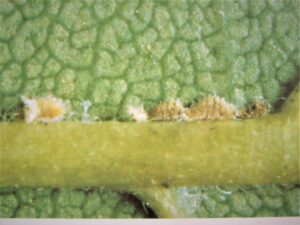“The U.S. Department of Agriculture’s (USDA) Animal and Plant Health Inspection Service (APHIS) is inviting public comment on two draft documents involving a petition from the State University of New York College of Environmental Science and Forestry (SUNY) seeking deregulation of an American chestnut variety modified for tolerance to chestnut blight. The first document is a draft Environmental Impact Statement (DEIS) that examines the potential environmental impacts, and the second is a draft Plant Pest Risk Assessment (DPPRA) that considers potential plants pest risks.
APHIS published SUNY’s petition on August 19, 2020, and solicited public comments for 60 days to aid the Agency in defining the scope and appropriate environmental documents. Following this, APHIS prepared an environmental impact statement to assess the potential impacts to the environment from deregulating the modified American chestnut variety. APHIS published a Notice of Intent to prepare an EIS on August 6, 2021, and solicited comments for 30 days to further define the scope of the alternatives and environmental and interrelated economic issues and impacts for consideration in the DEIS.
APHIS is now seeking public comments on the DEIS and DPPRA for 45 days so the public may review our preliminary evaluation of potential impacts on the environment in consideration of the SUNY petition. You can view the Federal Register notice, DEIS, DPPRA, and supporting documents on the APHIS website. Beginning November 10, 2022, members of the public can submit comments through December 27, 2022, by going to www.regulations.gov and entering “APHIS-2020-0030” into the Search field.”- November, 9. APHIS PPQ Press Release
For more information go to: https://www.aphis.usda.gov/aphis/newsroom/stakeholder-info/sa_by_date/sa-2022/american-chestnut-ge


